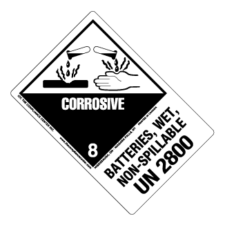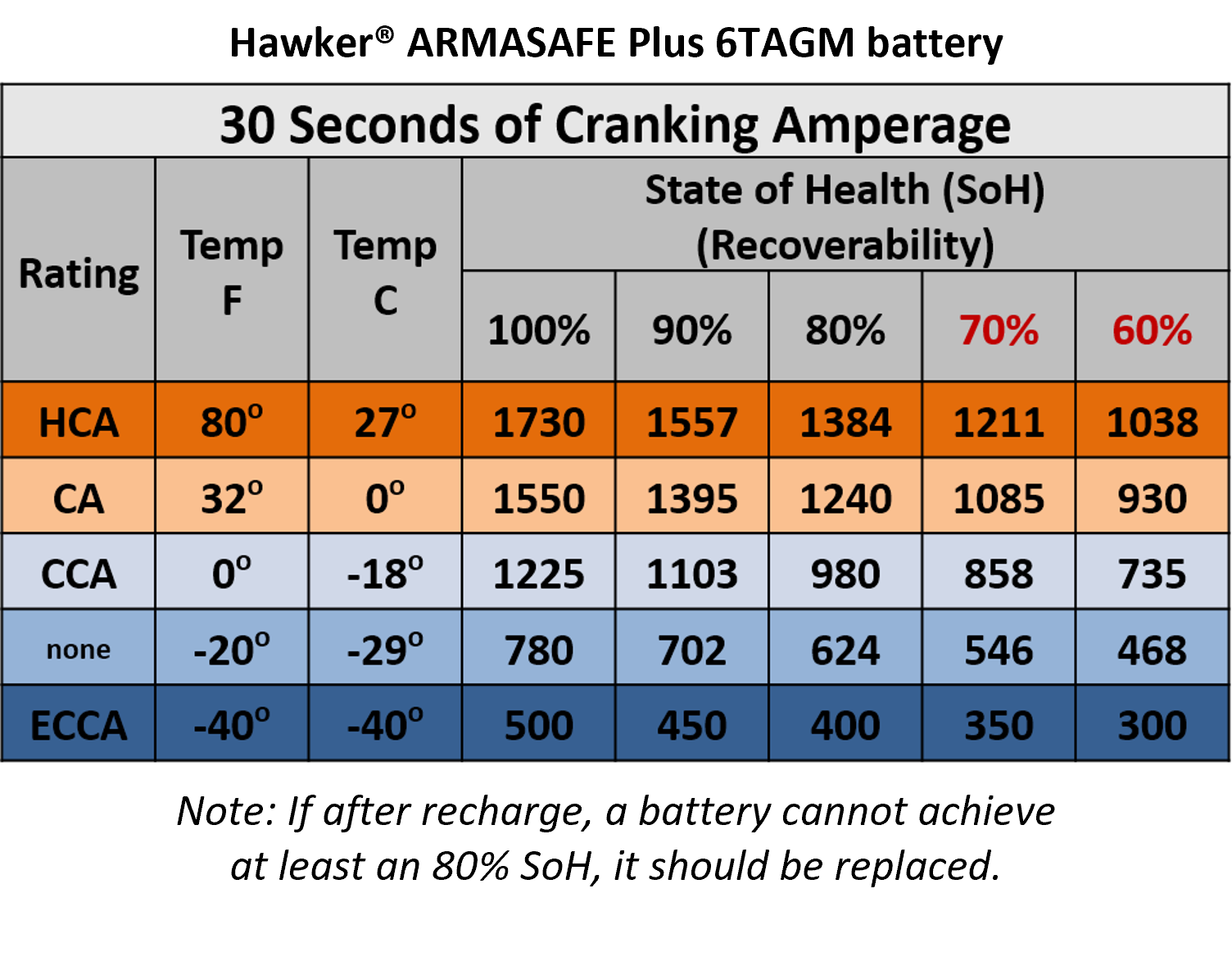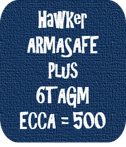Hawker Headlines
Winter 2023 Edition

Quick Tips!

Hawker® batteries are UN Class 2800 (non-spillable).
Want to ship your Hawker® battery by air, land, or sea
and need to know the shipping requirements?
Learn more at hawkerbattery.com/shipping-requirements/
It’s a lot easier than you might think!
Answer to question from last issue:
How do cold, very cold, and extremely cold temperatures affect my battery?
Battery performance is decreased as its temperature goes down and increased as its temperature goes up. This is why a battery that previously started your vehicle’s engine on a hot summer day can’t do the same after the vehicle was parked outside on a cold winter’s night. The colder a battery becomes, the more viscous (thicker) the electrolyte becomes. This increased viscosity slows down the chemical reaction that occurs between the electrolyte and the plates. The result…more amps for cranking when the battery is warm, but less when the battery is cold.

Did you know?

Extreme Cold Cranking Amps (ECCA) is a non-standard battery industry rating referring to the amount of cranking power that a fully-charged battery has for engine start when temperatures are very cold. Specifically, it’s the amount of amps that a nominal 12-volt battery can deliver at 32oF (0oC) for 30 seconds while still maintaining at least 7.2 volts (that’s 1.2 volts per cell). For example, the Hawker® ARMASAFE™ Plus battery has a ECCA rating of 500 amps.
Training:

With spring nearing…it’s a time for cheering! It’s also a great time to get your mechanics and operators trained on how to properly care for and maintain your fleet of batteries. Simply call your Hawker® FSR for free onsite Battery Maintenance & Recovery Training. You provide the students, we provide the training…right at your location!

